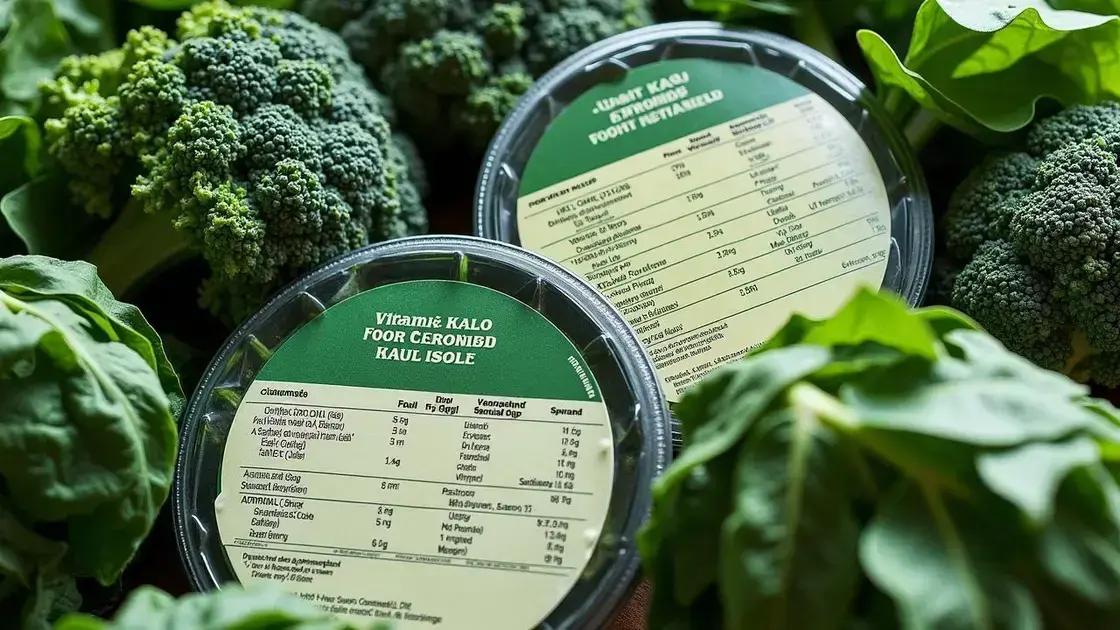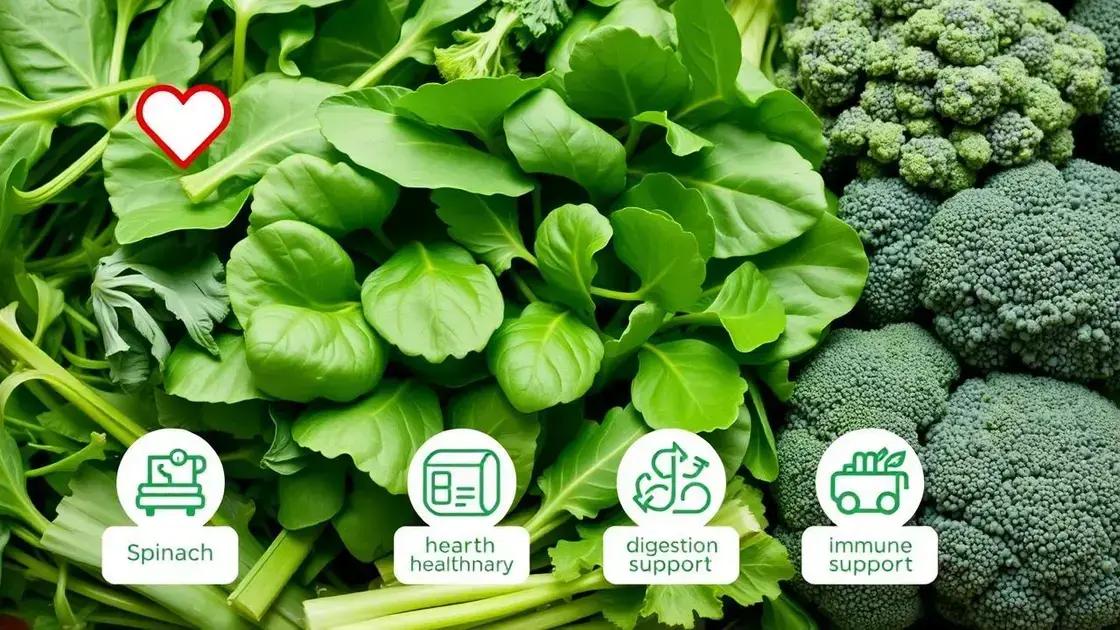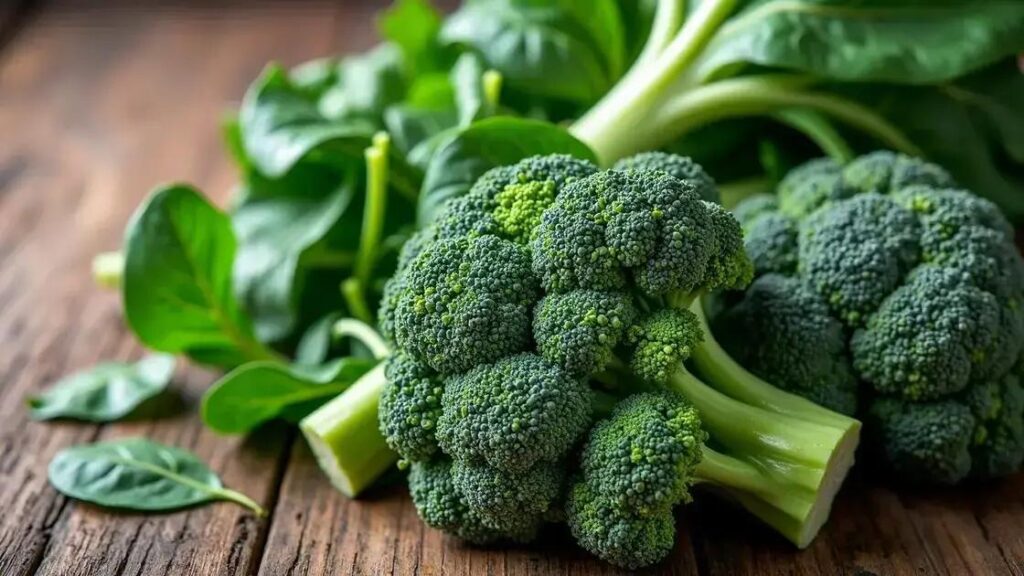Green vegetables are essential for bone strength as they are rich in vitamins and minerals like calcium and Vitamin K, which help improve bone density and overall health. Incorporating greens into your diet can also enhance heart health, digestion, and immune function while aiding in weight management.
When we think about maintaining strong bones, often the first things that come to mind are calcium and dairy. However, the benefits of green vegetables for bone strength cannot be overstated. These vibrant foods are packed with essential nutrients that not only support bone health but also enhance overall well-being. In this article, we will delve into the multitude of ways green vegetables contribute to bone strength, their nutritional value, and how to easily incorporate them into your daily meals.
Nutritional Profile of Green Vegetables

Green vegetables are not only colorful and tasty, but they also pack a punch when it comes to nutrition. Understanding the nutritional profile of green vegetables can shed light on their role in supporting bone strength. These veggies are rich in vitamins, minerals, and other essential compounds that are beneficial for overall health.
Vitamins and Minerals
Green vegetables are an excellent source of vitamins such as Vitamin K, which is crucial for bone health. Vitamin K helps in the formation of proteins that regulate calcium in bones and blood. Additionally, greens provide a good dose of Vitamin C, which promotes collagen production, offering support to the bone matrix.
Calcium Content
While dairy products are known for high calcium levels, many green veggies also contribute significantly to calcium intake. Leafy vegetables like kale, bok choy, and collard greens are particularly rich in calcium, helping to strengthen bones and prevent osteoporosis.
Other Nutrients
Green vegetables are abundant in magnesium and potassium. Magnesium plays a role in converting vitamin D to its active form, which is vital for calcium absorption. Potassium helps to neutralize the acidity of diets, reducing calcium loss from bones.
Antioxidants and Phytonutrients
Many green veggies are also high in antioxidants and phytonutrients, which combat oxidative stress that can damage bone cells. These compounds can reduce inflammation, contributing to better bone health.
Overall, the diverse nutritional profile of green vegetables makes them a powerful ally in supporting bone strength. By including a variety of these vegetables in your diet, you can ensure that you are getting the essential nutrients your bones need to stay healthy and strong.
How Green Vegetables Boost Bone Density

Green vegetables play a significant role in improving bone density, which is essential for maintaining strong and healthy bones. These nutrient-dense foods provide critical vitamins and minerals that contribute to bone strength and growth.
Enhancing Calcium Absorption
One of the primary ways green vegetables boost bone density is by enhancing the absorption of calcium. Vitamin K, abundant in greens like spinach and kale, is vital for activating proteins that bind calcium in the bones. This process helps to increase bone mineral density, making bones more robust.
Rich Source of Magnesium
Magnesium is another crucial mineral for bone health that is found in many green vegetables. It aids in converting vitamin D into its active form, which is necessary for calcium absorption. Foods like Swiss chard and broccoli provide an ample amount of magnesium, further supporting bone density.
Collagen Formation
Green vegetables also support the formation of collagen, a protein that helps maintain the structure of bones. Vitamin C, found in greens like parsley and green peppers, is essential for collagen synthesis, lending strength and flexibility to bones.
Reducing Bone Loss
Including green vegetables in your diet may also help reduce bone loss. Many greens contain antioxidants and anti-inflammatory compounds that can lower oxidative stress and inflammation, both of which can negatively affect bone density.
By consuming a variety of green vegetables, you can support your bone health and ensure that your body gets the nutrients it needs to maintain optimum bone density.
Incorporating Greens into Your Diet

Incorporating more green vegetables into your diet can be simple and enjoyable. By making small changes, you can easily reap the benefits of these nutritious foods. Here are some practical tips for adding greens to your meals.
Start with Breakfast
Add greens to your breakfast for a nutritious kick! Consider mixing spinach or kale into your morning smoothie. You can also prepare an omelet filled with these greens, providing essential vitamins to start your day.
Snack Smart
Instead of reaching for processed snacks, opt for crunchy green options. Celery sticks, cucumber slices, and leafy greens like arugula can be paired with hummus or yogurt dips for a healthy snack.
Include Greens in Your Lunch
Incorporate greens into your lunch by making salads a staple. Use a variety of greens such as mixed greens, romaine, and watercress as the base. Add colorful veggies, nuts, and seeds to boost flavor and nutrition. You can also create wraps using large green leaves, like collard greens, instead of traditional wraps.
Experiment with Dinners
Include green vegetables in your dinner by adding them to stir-fries, soups, or casseroles. You can use greens like bok choy or swiss chard to enhance dishes. Try sautéing greens in olive oil with garlic for a tasty side dish that pairs well with any meal.
By making these small adjustments, you can easily increase your intake of green vegetables, enriching your diet and supporting your bone health.
Additional Benefits of Green Vegetables

Green vegetables offer numerous additional benefits beyond supporting bone strength. These power-packed foods contribute positively to overall health in various ways.
Support for Heart Health
Many green vegetables, such as spinach and broccoli, are low in calories and high in fiber. This combination can help maintain a healthy weight and lower blood pressure. These heart-healthy properties reduce the risk of cardiovascular diseases.
Improved Digestion
The high fiber content found in greens promotes healthy digestion. Fiber helps regulate bowel movements and prevents constipation. Including foods like kale and arugula in your diet can contribute to better gut health.
Boosted Immune System
Green veggies are rich in vitamins and minerals that strengthen the immune system. For example, Vitamin C found in greens such as parsley and broccoli helps fight infections and boosts overall immunity, keeping you healthier.
Weight Management
Incorporating green vegetables into your meals can help you feel full without adding many calories. The fiber in greens provides a feeling of satiety, which can aid in weight management and prevent overeating.
Enhanced Skin Health
Eating green vegetables can contribute to healthier skin. Nutrients like beta-carotene found in spinach and collard greens can help improve skin texture and protect against sun damage.
With all these additional benefits, it’s clear that adding green vegetables to your daily diet promotes overall wellness and supports a healthy lifestyle.
In Summary: The Power of Green Vegetables
Green vegetables are not just a tasty addition to your meals; they are vital for maintaining bone strength and overall health. With their impressive nutritional profile, these veggies can enhance bone density, boost heart health, improve digestion, and support immune function.
By incorporating greens into your diet through simple methods, you can unlock a multitude of health benefits. Whether it’s a daily smoothie, a hearty salad, or a veggie-packed stir-fry, adding green vegetables to your meals is a step toward a healthier lifestyle.
Embrace the benefits of green vegetables and enjoy the improvements they bring to your bones and overall well-being!
FAQ – Frequently Asked Questions About Green Vegetables
What are the main benefits of eating green vegetables?
Green vegetables support bone strength, boost immune function, improve heart health, and aid in digestion, among other benefits.
How do green vegetables help with bone health?
Green vegetables are rich in vitamins and minerals like calcium and Vitamin K, which are essential for maintaining strong bones.
Can I incorporate greens into my diet easily?
Yes! You can add greens to smoothies, salads, soups, and stir-fries, making it easy to enjoy their nutritional benefits.
Are there specific green vegetables that are better for bone strength?
Vegetables like kale, broccoli, and spinach are especially high in calcium and Vitamin K, making them excellent for bone health.
What is the best way to prepare green vegetables?
Steaming, sautéing, or eating them raw in salads are great ways to enjoy green vegetables while preserving their nutrients.
Can eating green vegetables help with weight management?
Absolutely! Green vegetables are low in calories and high in fiber, which can help you feel full and satisfied, aiding in weight management.













